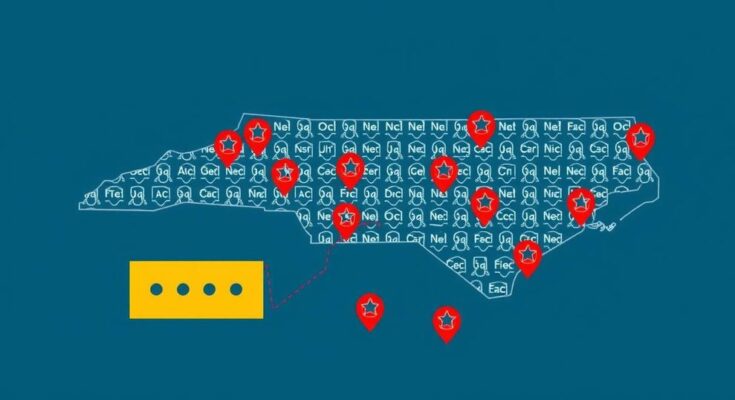North Carolina’s election results signal a transformative moment for public education, with the election of Democrat Mo Green as the state superintendent and a broken Republican supermajority in the House. This shift suggests the potential for increased investment in public schools and improved policies, amidst concerns over prior funding diversions toward private school vouchers. Stakeholders express both hope and skepticism regarding future collaboration on public education initiatives.
The recent election outcomes in North Carolina have brought a significant shift in the landscape of public education governance. Mo Green has emerged as the new state superintendent of public instruction, narrowly defeating Republican Michele Morrow by 2%. Alongside Green, Democrats have secured several key positions on the council of state, including that of the lieutenant governor, indicating a potential shift in policy direction toward public education in the state. Key players in educational policy now include the newly elected Democratic governor, Josh Stein, who will appoint a majority of the members to the State Board of Education. Green has expressed a commitment to increasing investment in public schools, advocating for enhanced funding in critical areas such as early learning interventions, teacher salaries, and support for disadvantaged students. His election raises hopes for a more cooperative educational environment given that the supermajority held by Republicans in the House has been broken, leading to potential bipartisan collaboration. Meanwhile, concerns persist over Republican strategies in education funding, particularly regarding the diversion of funds towards private school vouchers at the expense of traditional public schools. Justin Parmenter, an English teacher, noted the importance of focusing on public education as the primary choice for families, emphasizing that it must remain well-funded and competitive. The situation presents both optimism for a better balance of power in educational governance and skepticism about the willingness of Republican lawmakers to embrace a bipartisan approach. The implications of these election results extend to the State Board of Education, primarily appointed by Governor Cooper but facing a potential power reevaluation with Green’s leadership. The General Assembly holds essential legislative authority over educational policies, including teacher salaries and the school calendar. Previous attempts by the legislature to diminish the board’s authority could change under the new administration, especially as there is ongoing dialogue about ensuring that the board operates effectively and independently of partisan influences. As North Carolina navigates this complex evolving educational landscape, the potential for enhanced investment and support for public schools may lead to significant improvements. Key priorities include restoring respect for educators and providing better resources for students. The coming months may prove instrumental in determining whether the anticipated collaborative spirit materializes into effective policies that benefit public schools across the state.
In North Carolina’s recent elections, a shift in power dynamics has occurred affecting public education. The election of Democrat Mo Green as state superintendent signifies an opportunity for enhanced collaboration and investment in public schooling. Meanwhile, the state legislatures’ composition has altered, with projections of growing Democratic influence, challenging prior Republican-led policies, particularly concerning funding allocations. These developments raise questions about future legislative actions affecting public education, teacher pay, support for disadvantaged populations, and overall strategic direction.
In conclusion, the 2024 election results in North Carolina have fostered a hopeful, yet cautious, atmosphere regarding the future of public education. With the election of Mo Green and the breaking of the Republican supermajority, stakeholders may experience a shift toward increased investment in public schools and a potential rebalance of educational governance. The evolving political landscape presents both opportunities and challenges, compelling lawmakers to consider collaborative strategies that address the needs of students and educators alike.
Original Source: www.charlotteobserver.com




